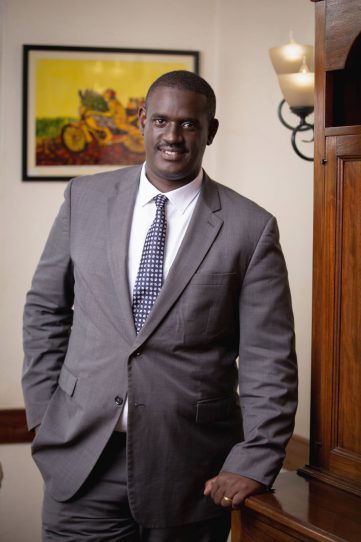The debate about the development of our oil and gas resources continues to rage on.
Many in Africa are justifiably skeptical of the option of lobbying for the money pledged under the Paris Climate accords. After all no continent has suffered more injustice than Africa and yet we have never been paid any reparations for the injustices we have suffered. If slavery, invasion, colonialism and neo colonialism could not be paid for, will money for bad weather ever be remitted?
The other problem, apart from our skepticism that is rooted in historical facts, is the global political reality. Forgive my cynicism that the pledges made by leaders of the West have ever or will ever have the consent of their constituents. We saw former US President Donald Trump run for office and win with the promise of removing America from the Paris Agreement. While President Biden has recently rejoined the agreement, he has not only issued a number of new licenses but also opened US federal lands to oil drilling. A report issued in September 2021 found that every single country in the G20 had failed to meet its climate obligations. The challenge of getting rich countries to limit their emissions has been made worse by the current global economic crisis. The Tony Blair Institute for Global Change has released a report stating that this year income across households in the UK will decline by 7%, the biggest decline since records started in 1961. So, like all populations around the world, we are seeing lower incomes, higher fuel costs and massive inflation affect developed and under developed countries. Which population will allow their politicians to transfer large swathes of wealth to people in Africa? A promise to pay Africa US$100bn is therefore not just historically dubious it also lacks democratic legitimacy.
Oil revenue will have a significant impact on Uganda’s economy. The Chairman of the Uganda Chamber of Mines and Petroleum, Patrick Mweheire, pointed out this week that the oil resource has the potential to double our GDP within five years. The East African Crude Oil Pipeline is not only a pipeline that transports crude oil but also an opportunity to open a new trade route between Uganda and Tanzania. A number of new businesses have already opened up along the pipeline route, to which we have already seen 500km of tarmacked road being constructed. The construction of Kabaale International Airport stands at 90% completion, this will be Uganda’s second international airport.
In addition to the infrastructure, oil revenue creates synergy between the oil industry and other sectors of the economy. We are attracting a total investment of over US$20bn which will be the single largest investment in East Africa so far. Tanzania will soon attract a US$30bn investment for its gas project and we are likely to see a reverse gas pipeline along the EACOP route from Tanzania to Uganda. While Kenya will remain the logistics hub for Ugandan oil, as we continue to use the port of Mombasa, DR Congo, Tanzania and Uganda will reap huge benefits from their hydrocarbon resources.
Furthermore, the proposed refinery in Uganda will have a significant impact on the economy through the production of petrol, diesel, heavy fuel oils, kerosene and Liquified Petroleum Gas which is a mitigation effort in the fight against deforestation and environmental degradation.
The need to mitigate against all social, economic and environmental risks that an oil project brings cannot be overemphasized. Serious and formidable work has been done to mitigate and avoid project risks as much as possible.
The opportunity the oil brings and has already brought to the region cannot be underestimated. The alternative to this oil development is that we leave the oil in the ground and instead be paid under the Paris Climate agreement. Under this agreement, the rich countries committed to pay to poorer countries a total of US$100bn per year. The commitment is almost 10 years old now. This money was some form of reparations for the climate damage the industrialization of the rich countries had caused. We could abandon the oil with its macroeconomic benefits and then lobby for these resources as our development alternative.
Unlike wealthy nations, that as major producers will remain wealthy even when their oil and gas revenue is removed, we cannot afford to gamble the Uganda of future generations on hypotheticals, especially with the opportunity we have at hand. We will never be forgiven if we do.



